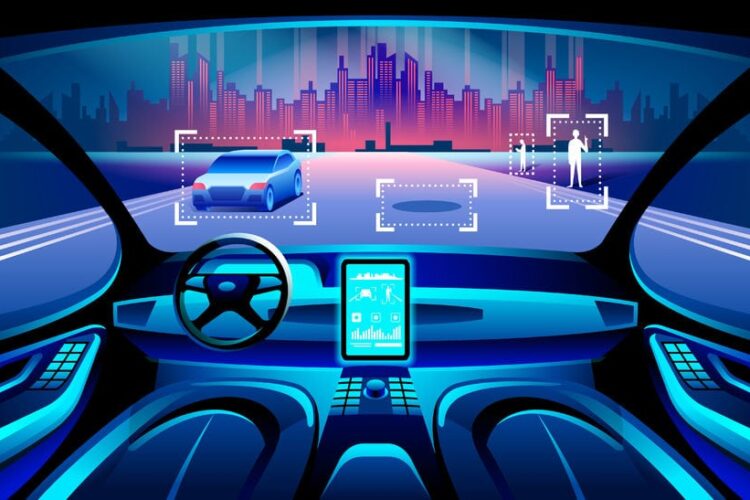Autonomous and Driverless Cars in Florida

Everyone has heard of “driverless cars”, but what is the status of that in the State of Florida? Florida is actually ahead of the curve—for good or bad can be argued—when it comes to driverless automobiles. The first question is whether a “driver” of a driverless car would need a permit to operate such a vehicle. In Florida, the answer to that is no special permit is needed. In 2012 Florida passed a law that allowed a person who has a valid driver’s license to operate an autonomous vehicle. (F.S. 316.85) The initial Florida law required that the company wanting to place a driverless car in the state of Florida had to maintain at least $5 million in insurance.
Presently in Florida, there is no requirement that the maker of the vehicle carries insurance due to changes made by the Florida legislature in 2016. The vehicle also does not have to be occupied by a person, as long as an operator can be alerted in case of a technology issue and can stop the vehicle.
This Is Scary Stuff for Florida Drivers
No permit is required of Florida drivers of an autonomous vehicle. This means Florida does not require any specialized training, classes, or certification. Since Florida does not require any permitting, the State of Florida does not know how many autonomous vehicles are being used right now.
What if I Am Hit by a Driverless Vehicle?
Expect a fight. Insurance companies are fond of resorting to a defense of “the Defendant had no notice of the condition”. The defense-attorney/insurance-company theory goes, “The Defendant had no notice of the dangerous condition—which caused the vehicle to crash into Ms. Jones—therefore, the Defendant did not do anything wrong”. Here is the problem: the State of Florida has effectively already let the manufacturer of the vehicle off the hook by not requiring the manufacturer to put up a bond with the State of Florida. Personal injury automobile cases are not usually product liability cases. They are negligence cases. Product liability cases are some of the longest-running, harshest, most contested of cases. Possibly turning these motor vehicle crashes into product liability cases against the manufacturer of the vehicle—instead of the driver or owner of the vehicle—will make recoveries more difficult. No product maker, especially a car manufacturer, will allow their product to be labeled unsafe without a major fight.
The Technology Isn’t Perfect
News reports demonstrate that accidents with driverless cars do occur. Ironically, Florida was the location of the first death which involved a driverless car, a Tesla, which had been placed on autopilot. The crash occurred May 7, 2016, near Williston, Florida on a two-lane road when a tractor-trailer turned left in front of the on-coming Tesla—which was driving at 74 miles per hour. Tesla admitted that the brake was not applied by the vehicle. Initial reports indicated that the computer program did not recognize the situation of the tractor-trailer being broadside to the Tesla and not a typical rearview or oncoming view of the tractor-trailer. It is interesting that the National Highway Traffic Safety Administration made a conclusion that the autopilot operated appropriately. Some of this may be based upon the notion that Tesla, and other autonomous vehicle makers, contend that the occupant of the vehicle is still responsible to pay attention and be ready to make a corrective action when needed. It is questionable, however, that an occupant who regularly relies upon the autonomous function would stay engaged enough to intervene in an emergency situation where literally immediate action is required. Other deaths and accidents have occurred using autonomous vehicles.
Elaine Herberg was struck and killed by an Uber-autonomous vehicle going 40 mph on March 18, 2018. The vehicle had a “driver” within it, who took no apparent action to avoid hitting the pedestrian, and it appears the vehicle did not try to stop.
Caution in How the Politicians Are Treating the Makers of Autonomous Cars
It should be instructive to everyone who is paying attention to how the politicians are treating both the idea of autonomous vehicles and the makers of autonomous vehicles. In Florida, makers of autonomous vehicles were given the green light in 2012 by the Florida legislature to place autonomous vehicles on the road, and then in 2016, the Florida legislature eliminated the requirement of keeping a bond or proof of insurance with the State of Florida. Arizona—the site of the Uber-pedestrian death case—was criticized for the governor’s open-arms approach to allowing autonomous vehicles to be tested on public roads. In 2017 Arizona’s governor stated that “We needed to send a message” to the autonomous carmakers that Arizona wanted these cars on Arizona roads. Furthermore, the federal government as yet has not imposed restrictions on driverless cars, but has left it up to each state to make their own rules regarding what the State of Florida otherwise calls a “dangerous instrumentality”. It is also notable that the federal government did away with liability for rental cars in 2005 for rental car companies. This essentially left rental vehicles uninsured if the renter had no insurance and did not pay extra for insurance with the rental car company. In the end, it is the taxpayers who have to pay for injured victims of uninsured rental car customers.
Autonomous-driving cars are swiftly coming to Florida roads in volume. We are betting that “drivers” who have their vehicles on autonomous mode will not be paying attention. As it stands now people are texting even while driving high-speed in heavy traffic. This is going to be a complex area of litigation. Make sure you choose someone to represent you with the experience required to meet this challenge.
25 Years Experience. Ready to Help You Right Now.
